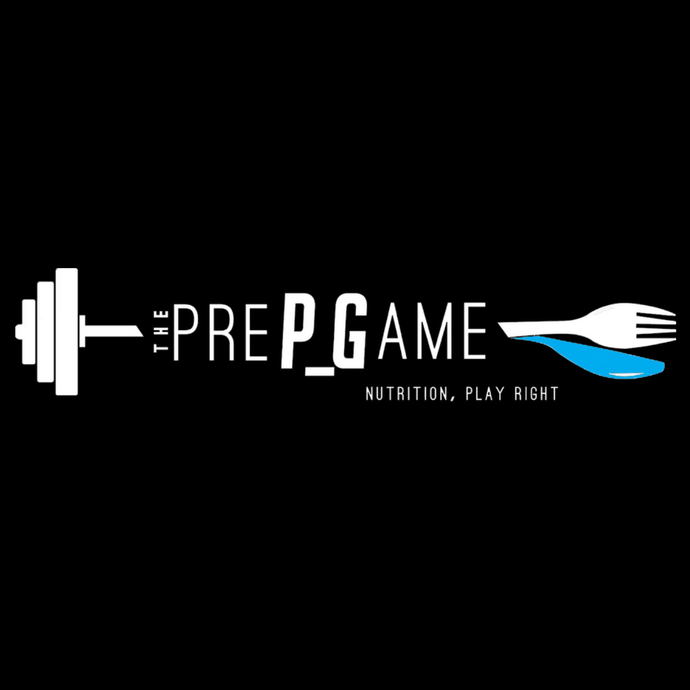Over recent weeks I have seen something that I never imagined I would ever see. Dietitians publicly promoting images of themselves chowing down on donuts, biscuits and all manner of sugary morsels. Dietitians, and other health professionals of a similarly conservative background - all promoters of nutritious foods, who help people to reduce their intake of high sugar, high fat foods. But shouldn't a dietitian be seen crunching on an apple or a carrot stick? These sugar-sweet images certainly don't seem to convey the message of good nutrition and health at first glance. However, there is a valid reason why many dietitians are going against the grain. It has everything to do with moderation. But what is moderation, and is moderation the best approach for everyone? My suggestion would be, not necessarily.
There appears to be a show of unity amongst a growing number of dietitians in promoting the messages of balance, moderation and non-restrictive eating (exactly what most of us should aim for ultimately). This reaction is in direct response to the current glut of dietary approaches that involve extreme restriction of foods and food groups. Many nutritionists and dietitians do not support these popular diets and are taking a stance to illustrate that all foods can be enjoyed in moderation, for both health and enjoyment, and that no food or food group is completely off-limits.
One thing I do love about the ambassadors of the back-to-nature style food trends is their passion. They practice what they preach (mostly, unless they are getting paid the big bucks on cooking competition shows, then 'toxic' sugar is all of a sudden neutralised). They live and breathe nutrition and health, almost to (and sometimes beyond) the point of obsession. When 'clean' eating goes too far it is no longer a healthy way to live. Unfortunately this all or nothing approach can often lead to disaster, or at least a major fall of some sort, in the long-term.
Personally, I don't recommend that people eat donuts, cakes, biscuits, etc. I don't label them as 'never' foods either. Many people come to see me to improve their nutrition either for exercise performance, to achieve body composition goals or to manage digestive issues. For athletes to improve their chances of success, there are benefits to relatively specific structure when it comes to training, nutrition and other factors that contribute to performance. If someone is trying to lose body fat or gain muscle mass in a timely fashion then the same applies. For those with digestive issues, restriction is often required, no question. I would suggest that all people who book in to see a dietitian are working towards particular goals and looking for strategies to achieve these. In my experience structure beats moderation hands down, in the short-term at least.
Moderation is a term that is interpreted differently by different people. For some people, it may mean eating well most of the time, then relaxing a bit once per week or fortnight when they go out for dinner. For others, moderation may mean having a small piece of dark chocolate every night within a relatively healthy eating style. Others may have half a chocolate block and find moderation there. For others it might mean having 4 beers per night instead of 8. Moderation varies widely in its application, and can mean very different things for health and associated outcomes. The term moderation is in some ways irrelevant without some level of boundary with regard to the types and volumes of food. For some people these boundaries can be more flexible than others.
Back to my example of athletes. For particular times of the year their boundaries may be quite tight if there are specific goals for a given time-frame, then more flexible at different times of the year. Someone trying to lose weight may also need more structure to start with, but we all have different motivators, so some people might like generalised guidelines in preference to the 7-day plan that could work well for others. For someone with intolerances and allergies, moderation is not an option. For someone who cannot eat certain foods, it may be quite frustrating to hear 'everything in moderation' as the best strategy for healthy eating, as this is an option they may yearn for but will never experience as a reality.
For someone already at a healthy weight and of good health, moderation is the way to go. The idea of being able to maintain good health while still enjoying the foods and drinks that you love is very appealing. Maintenance with moderation is achievable, although for people with a history of weight fluctuation, mindful moderation will still be important to ensure long term good health. This brings up another point - moderation is very hard for a lot of people. Not everyone can just stop at one chocolate out of a fresh box, or one donut, or a handful of chips. Actually I would say that most people find moderation hard. Moderation is great in theory, but putting moderation into practice doesn't just happen....it takes some time, effort and prioritizing, and it often requires some professional help.
Of course there are individuals who find moderation easy, or don't have the same food temptations experienced by many. There are also those who have the genetic make-up where they seem to be able to eat almost anything and as much as they like with absolutely no difference to their weight and health (although not everyone within their healthy weight range is fit and well).
For those experiencing disordered eating, moderation can be a real challenge. More and more young (and older) people are being effected by disordered eating, which is often characterized by restrictive patterns. A strong message of 'moderation' is particularly relevant with regard to disordered eating. As the above examples indicate, the specifics of the moderation message need to be tailored according to an individual's relationship with food.
So perhaps the image portrayed by some dietitians of late has more to do with the particular client groups that they work with and how the moderation concept applies. I can think of a personal example myself, where I was acutely aware and concerned of my image as a dietitian. When I was pregnant I suffered from reasonably bad morning sickness, and the one thing that I craved and could stomach was eggs. Eggs and bacon and extra salt to be exact, and the drive-through muffin varieties were particularly appealing and convenient. If the timing was right I would have prepared my own eggs and bacon, but as I was finding it very difficult to cook due to illness, the take-away was the best option at the time. My heart would race every time I drove through, in fear of being spotted by one of the staff or players from the sporting club where I worked. The thought of one of them seeing me eating foods that were perceived to be unhealthy made me nervous. It may sound ridiculous, but for the type of clients I work with, visuals of myself eating perceived 'junk' foods would not, I feel, be the best example of my philosophies when it came to nutrition. Not that I don't ever eat those foods, but I think it would be quite hypocritical in a way, and almost offensive, to be seen devouring foods that I have recommended that my clients reduce their intake of. The reality is, that for many athletes there are times where they do need to reduce their intake of particular foods to reach their goals. Not all the time, just certain defined time periods. I am not embarassed about any of my food choices, and I do believe in the moderation concept, but the application of moderation is highly variable for individuals, and their specific needs, whether that be within a training cycle, a calendar year or over a lifetime.
There is an important place for moderation in nutrition, when applied appropriately and interpreted and communicated effectively. Finding the right approach for your individual needs is the key, to be able to reach your goals, enjoy good health and appreciate and enjoy delicious foods and flavours. No foods or food groups need to be avoided completely, other than for medical reasons, but don't expect all dietitians to be putting donuts on your menu either.




























